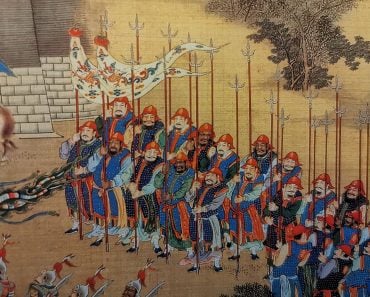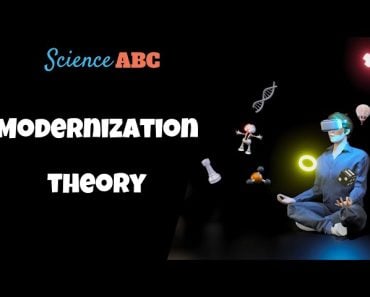Table of Contents (click to expand)
Western portrayal of the East as exotic, despite being heavily influenced by power dynamics and colonialism, is critiqued for perpetuating stereotypes.
Orientalism is a term that refers to the Western perception and representation of the cultures and peoples of the Orient.
Orientalism can be defined as the Western perception of the Orient as exotic, mysterious, and inherently different from the West. It involves creating stereotypes, myths, and fantasies about the Orient, often based on a Western perspective that privileges European cultures and values as superior.
Orientalism is not merely a neutral study of the Orient, but a discourse deeply intertwined with power dynamics and the historical legacy of colonialism and imperialism.
It is a concept that has been widely discussed and critiqued in academic circles, particularly in the fields of cultural studies, postcolonial theory, and literary criticism. The term was popularized by the Palestinian-American literary theorist Edward Said in his seminal work, “Orientalism,” published in 1978.

Recommended Video for you:
Historical Context
Orientalism, as a concept, emerged during the Age of Enlightenment in Europe, a period characterized by intellectual curiosity, scientific progress, and exploration. During this time, there was a notable surge in interest among European scholars, philosophers, and artists in the cultures, languages, and religions of the East, particularly the Middle East, South Asia, and East Asia.
The fascination with the Orient, which was not purely academic or benevolent, was driven by a variety of factors. These included the influx of goods and ideas from Eastern regions due to expanding trade networks, as well as the translations of ancient texts, such as the Quran and the Vedas.

This interest was often intertwined with the Western desire for economic, political, and cultural dominance over Eastern societies. European powers, driven by mercantile ambitions and the quest for resources, sought to understand the societies they encountered in order to better exploit them for their own benefit. This led to a skewed and often patronizing view of the East, where Western observers viewed Eastern cultures as exotic, mysterious, and inherently inferior to their own.
The rise of European colonialism and imperialism in the 18th and 19th centuries further entrenched Orientalist attitudes. As Western powers expanded their empires into Asia, Africa, and the Middle East, they justified their conquests by portraying Eastern societies as primitive, barbaric, and in need of Western intervention and civilization. This justification served to legitimize the exploitation and subjugation of indigenous peoples, as well as the imposition of Western values, institutions, and systems of governance.
Contextualising Orientalism
According to Edward Said, Orientalism is a manifestation of the West’s desire to exert power and control over the Orient. It perpetuates a binary opposition between the West (the self) and the Orient (the Other), where the West is portrayed as rational, progressive, and civilized, while the Orient is depicted as irrational, stagnant, and uncivilized. This dichotomy serves to reinforce the West’s sense of cultural superiority and legitimize its colonial and imperialist endeavors.

Orientalism is not merely a matter of misrepresentation or cultural ignorance; it is a systematic way of thinking and representing the Orient that shapes and reinforces Western attitudes, policies, and actions towards the East. Said argues that Orientalism is deeply embedded in various Western discourses, including literature, art, academia, and popular culture, and has profoundly influenced the West’s understanding and engagement with the Orient.
Examples Of Orientalism
Orientalism manifests itself in various forms and across different media. In literature, works such as Arabian Nights and The Rubaiyat of Omar Khayyam became tools to perpetuate stereotypes of the Orient as a place of exotic sensuality, mysticism, and despotism. In art, the Orientalist painting tradition, popularized by artists like Jean-Léon Gérôme and John Frederick Lewis, often depicted the Orient through a romanticized and sexualized lens, emphasizing harem scenes, odalisques, and exotic landscapes.

In popular culture, Hollywood films and television shows have often portrayed the Middle East and Asia as backward, violent, and oppressive, reinforcing Orientalist tropes and stereotypes. Even in academia, some Western scholars have been accused of approaching the study of Eastern cultures and civilizations through an Orientalist lens, prioritizing Western perspectives and failing to acknowledge the complexities and nuances of the Orient.
Criticism Of Orientalism
Edward Said’s critique of Orientalism has been highly influential and has sparked widespread discussions and debates within various academic disciplines. While some have praised Said for exposing the deeply rooted biases and power dynamics inherent in the Western representation of the Orient, others have criticized his work for oversimplifying and overgeneralizing the concept of Orientalism.

Critics argue that Said’s analysis overlooks the diversity and heterogeneity of both Western and Eastern cultures, and that not all representations of the Orient are necessarily Orientalist. Some scholars have also pointed out that Said’s work fails to acknowledge the contributions of Eastern scholars and intellectuals like Mohammed Arkoun, Anouar Abdel-Malek, and Aijaz Ahmad in shaping the discourse on the Orient, and that it perpetuates a binary opposition between the West and the East, reinforcing the very dichotomy it seeks to dismantle.
Despite these criticisms, Said’s work has been instrumental in raising awareness about the pervasiveness of Orientalist attitudes and the importance of decolonizing knowledge and representations. It has inspired scholars and activists to challenge and deconstruct Orientalist narratives, and to amplify marginalized voices and perspectives from the East.
Conclusion
Orientalism is a complex and multifaceted concept that reflects the power dynamics and historical legacies of colonialism and imperialism. While Edward Said’s critique has been influential in exposing the biases and stereotypes inherent in the Western representation of the Orient, the discourse surrounding Orientalism continues to evolve, with ongoing debates and critiques from various perspectives.
Orientalism, while controversial, did contribute to the expansion of knowledge about Eastern cultures in the Western world. It sparked academic interest in languages, literature, art, and history of the East, leading to the growth of Oriental studies and cross-cultural understanding.
Ultimately, confronting and dismantling Orientalist attitudes is crucial in promoting greater understanding, respect, and cultural exchange between the West and the East, and in challenging the perpetuation of harmful stereotypes and biases.













